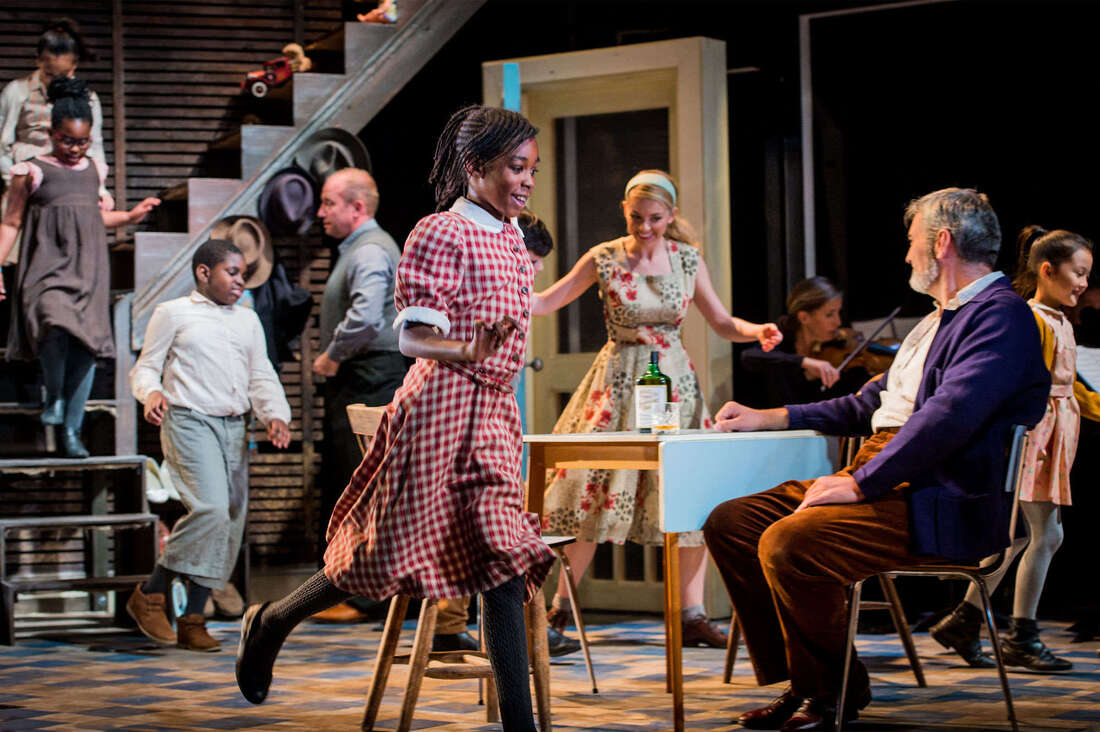The Guardian: “More crucially, Massenet’s sizable late-Romantic orchestra is reduced to four players – violinist Philippa Mo, cellist Morwenna Del Mar, clarinettist Oliver Pashley and pianist Iain Farrington, who directs his own arrangement from the keyboard and has done an outstanding job in retaining the spirit of the original in his skilful chamber rescoring.”
The Daily Telegraph: “As well as making a few insignificant snips, Iain Farrington has cleverly reduced the glutinous and palpitating score for a quartet of piano, violin, cello and clarinet. The playing, led by Farrington at the keyboard, is impassioned without being over-powering, and in the acoustics of a small theatre little of the orchestral intensity is lost.”
What's On Stage: “Iain Farrington’s reduction for piano, violin, cello and clarinet is very attractive on its own terms, and under his own direction it's immaculately played.”
-----------------------------------
Programme note:
In the post-war years of austerity, Benjamin Britten was at the forefront of a new type of opera, the “chamber” opera. Although principally focussed on new works, this pioneering venture aimed to widen the reach of live opera performance: small orchestras, no chorus, simple costumes and staging. In the last few decades, this genre has come of age with “reduced” arrangements of repertoire works, allowing performances in venues from public gardens to prisons.
My new arrangement of Massenet’s Werther is a complete re-working of the rich, Romantic orchestral score, adapted for only four players: clarinet, violin, cello and piano. Rather than being a mere reduction of the full score, this version attempts to create an entirely new chamber piece. Every player is a soloist with their own character: the clarinet agile and melancholic, the violin soaring and passionate, the cello rich and soulful, the piano full and supportive. Taken as a whole with the vocal lines and text, the intention is to conjure an atmosphere of intimate and direct expression.
The scenario of the opera is perfect for this approach: a “normal” domestic household is disrupted by passionate personal conflicts. Musically, this brings the sound-world closer to that of song, especially the mélodie so beloved of French composers. French music is often noted for its transparency, lightness and delicacy, qualities that we will be exploring. Massenet himself composed many volumes of songs, and this arrangement taps into that deep source.
The Daily Telegraph: “As well as making a few insignificant snips, Iain Farrington has cleverly reduced the glutinous and palpitating score for a quartet of piano, violin, cello and clarinet. The playing, led by Farrington at the keyboard, is impassioned without being over-powering, and in the acoustics of a small theatre little of the orchestral intensity is lost.”
What's On Stage: “Iain Farrington’s reduction for piano, violin, cello and clarinet is very attractive on its own terms, and under his own direction it's immaculately played.”
-----------------------------------
Programme note:
In the post-war years of austerity, Benjamin Britten was at the forefront of a new type of opera, the “chamber” opera. Although principally focussed on new works, this pioneering venture aimed to widen the reach of live opera performance: small orchestras, no chorus, simple costumes and staging. In the last few decades, this genre has come of age with “reduced” arrangements of repertoire works, allowing performances in venues from public gardens to prisons.
My new arrangement of Massenet’s Werther is a complete re-working of the rich, Romantic orchestral score, adapted for only four players: clarinet, violin, cello and piano. Rather than being a mere reduction of the full score, this version attempts to create an entirely new chamber piece. Every player is a soloist with their own character: the clarinet agile and melancholic, the violin soaring and passionate, the cello rich and soulful, the piano full and supportive. Taken as a whole with the vocal lines and text, the intention is to conjure an atmosphere of intimate and direct expression.
The scenario of the opera is perfect for this approach: a “normal” domestic household is disrupted by passionate personal conflicts. Musically, this brings the sound-world closer to that of song, especially the mélodie so beloved of French composers. French music is often noted for its transparency, lightness and delicacy, qualities that we will be exploring. Massenet himself composed many volumes of songs, and this arrangement taps into that deep source.
